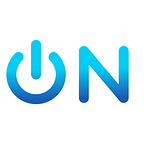Reporting on Digital Identity Issues with Nuance and Tenacity
Why We Invested in the Africa-China Reporting Project
By Abiah Weaver, Omidyar Network
We believe that media strengthens society. It plays an important role in creating public awareness of digital identity-related decisions and their rights. It acts as a watch dog to protect public interests and helps hold decision makers accountable to those interests. And it helps shape the opinions of business leaders, policymakers, and the public.
To hold ID issuers accountable, a diverse range of stakeholders must raise questions, needs, and alternative solutions, openly in the public domain. The media, by design, is part of that civic space and is constantly taking and relaying the pulse of the communities it serves.
And to strengthen ID issuers’ capacity to deliver Good ID, we must provide new information from various experts, some of which might not be able to secure a meeting with a decision maker. The media, by design, is an equalizer, presenting all sides of a debate and new insights that might not yet be widely known, without judgement or pressure.
However, if the media is not well informed on a topic or lacking basic skills, the narrative can be manipulated, the complexities and implications of can go unexplained, decisions can be misunderstood, information and voices can be suppressed, and bad ID can advance unchecked.
We believe that transparency, accountability, and continuous public engagement needs to be embedded into the entire digital ID journey; the media also abides by those values. Journalists need to be equipped to begin their coverage on digital ID before the first decisions are made and at every milestone, even after implementation.
We are excited to welcome the University of Witwatersrand Journalism Department’s Africa-China Reporting Project as our newest collaborator, expanding the group of competent journalists in Africa and China who are able to report on digital identity issues with “nuance and incisiveness”.
The project facilitates journalism via skills training, workshops, and reporting grants. They engage professional and freelance journalists in “investigating complex dynamics and uncovering untold stories” in all formats: written, videography, photography, and multimedia. They also bring these experienced journalists into the university classrooms and the community to speak and show more about the stories they found during their reporting experiences.
The project is distinguished from other media development services because of its focus on the Africa-China relationship. This focus is extremely relevant to digital identity. China is Africa’s largest trading partner. And Chinese companies and lenders are having an outsized influence on Africa’s technology infrastructure, including digital identity.
It is important to note, that despite the focus on Africa and China’s relationship, the project is non-political. Guided by journalistic ethics, the reporters and their editors will ultimately decide what is to be published.
Another unique factor of the project is their requirement that journalists conduct on-the-ground reporting and promote African agency. Local verification is critical for accurate, nuanced, and steadfast reporting of complex issues. Today, most of the reporting on China’s influence in Africa and digital identity in general emanates from outside of Africa, thus perpetuating biases and stereotypes. The Africa-China Reporting Project prides itself as being an “African institution that supports Africa-China journalism that puts the interests of Africa and its people first”.
By exploring Africa’s digital identity decisions through this type of training and reporting we aim to empower and enable Africans to make their own decisions, hold vendors and issuers accountable to Good ID, and inspire African-led innovations.
Please read the project’s call for journalists to investigate these issues here.
